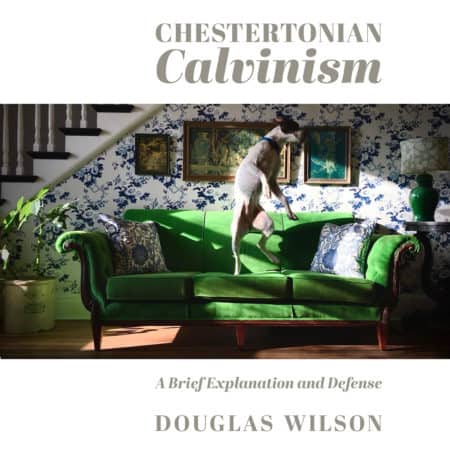Preamble
If you are here for the really inflammatory stuff, that doesn’t really come in until the penultimate section. But if you want to understand the reason for the inflammatory stuff, I am afraid you will have to work through the whole article. I’m sorry, but we were not put into this world for pleasure alone.
Introduction

So an epistemic penny dropped for me the other day.
Everyone sees that America is divided between two rival factions, and we are well into what has been called a cold civil war. So much is obvious. There are the defined factions on either end of the division, and in the middle there is a large inchoate group that just wishes it would all go away, but which will still have to make up its mind at some point.
What is driving all this?
The thing that occurred to me concerned the energy behind the two rival factions. Why are they at daggers drawn, of necessity? The answer is that the two rival factions are shaped and contained by two rival definitions. I have said for years that our cultural battles are over editorial control of the dictionary. But this latest thought means that it all comes down to just one word. What is the definition of insanity? What does madness mean?
In order to set this up, I am going to be talking about our emotions, our passions, our affections, our feelings. These two groups define insanity in very different ways, but both in terms of our relationship to these emotive realities. One group defines insanity as any kind of restriction of or discipline for these feelings. The other group defines insanity as letting these feelings run riot, run loose. And it should be quite obvious that there is no real way to split the difference between them.
For one group, feelings are the pole star by which they navigate. For the other group, feelings are what they sail on, an ocean sometimes stormy, sometimes choppy, and sometimes calm. But their pole star is outside themselves, outside the ship, and for the Christians among them, outside the world.
Rachel’s Spanking Goes Viral
So just last week, someone posted an old clip of some parenting advice that Nancy gave at a small conference that we held a number of years ago, and the thing went nuts, garnering millions of views in the first day or so—just shy of 3M views last time I checked. And, truth be told, the clip went nuts because a bunch of people went nuts.
Naturally, Boz Tchividjian jumped into the discussion, along with a robust portion of the rest of the country, and he was discussing the problem of these Idahoans who still discipline their children with one Julie Roys. One the one hand, he had to discuss us because we are still running around loose, but on the other hand, he was conflicted and didn’t want to give us the time of day. And why? He summed up his assessment neatly when he said we were “nutjobs.” Always make sure you get your evaluations from a trained professional.
The offense? The offense was that Nancy was talking about how we taught and disciplined attitudes, and not just actions. Disciplining for actions would be when you addressed things like hitting, grabbing, pushing, and so forth. Many moderns don’t even like it when parents exercise even that much discipline, but for them it would at least be discipline for overt deeds. But disciplining for attitudes meant that we did not allow moaning, grumbling, whining, snitching, or any of the rest of that sorry lot. All of this, for Boz, was clearly beyond the pale. Disciplining for attitudes is what nutjobs do.
But turn about really is fair play. What do we think of life in a place where attitudes and emotions are absolutely ungoverned? Well, the word asylum comes to mind. I think of that kind of place as being, you know, hellish, unhinged, demented.
So there we have it. One faction holds that the passions of each individual are are to be considered inviolate, and that to restrict, retard, punish, bridle, or discipline any of it is to assume the role of a “dear leader” tyrannical madman. But the other group—let us just go ahead now and call them Christians—believes that the heart is deceitfully wicked, and who can understand it? When the gospel comes to us, it does not come in to flatter. The worst enemy that any one of us has would have to be our own passions.
And when discipline of the passions breaks down in any society, this means that everyone becomes prey to one another. The only reason we would put up with that kind of thing would be because we had lost our minds . . . as we have clearly done.
“But if ye bite and devour one another, take heed that ye be not consumed one of another.”
Galatians 5:15 (KJV)
“For we ourselves also were sometimes foolish, disobedient, deceived, serving divers lusts and pleasures, living in malice and envy, hateful, and hating one another.”
Titus 3:3 (KJV)
And so it follows, further, that to lobby for such a social order is to give way to insanity, to madness. And if Christians try to articulate their love for moral order, and the need to discipline in terms of what they love, the response from the world is . . . well, rage. They don’t want to see their brand of insanity thwarted.
And so here we are.
For many years I have used the following illustration. Suppose a tender-hearted grandma is over for a visit, and as she is departing, she gives her little two-year-old grandson a treat, which he takes from her, somewhat sullenly. Say thank you, his mama says. At that point the mystery of lawlessness takes over, and he flat refuses. The mom, a good, diligent Christian woman, asks grandma if she can wait just a few extra minutes, asking this as she is leading The Defiant One back to his bedroom. The grandma, who has been attending a big-box goo-church for some reason, where the pulpit is filled with cotton balls molded into the similitude of a man, says something like, “but I only want him to thank me because he means it.” To which the orthodox mom replies, “just give me five minutes, and he’ll mean it.”
For some people, this is child abuse, pure and simple. For others, it is the signal that the child has a much better opportunity to grow up into a useful and productive citizen, and who is unlikely to serve any time in a penitentiary.
One group is like Mrs. Dashwood and is all-in for Marianne, and the other group, a bit less boisterously, understands that Elinor is the true protagonist in Sense and Sensibility. Our goal in bringing up our daughters was to see them grow up into the kind of Christian maturity that understood the wisdom of Elinor. And, by the grace of God, we succeeded.
Elinor “had an excellent heart;—her disposition was affectionate, and her feelings were strong; but she knew how to govern them: it was a knowledge which her mother had yet to learn; and which one of her sisters had resolved never to be taught.
Marianne’s abilities were, in many respects, quite equal to Elinor’s. She was sensible and clever; but eager in everything: her sorrows, her joys, could have no moderation. She was generous, amiable, interesting: she was everything but prudent. The resemblance between her and her mother was strikingly great.
Elinor saw, with concern, the excess of her sister’s sensibility; but by Mrs. Dashwood it was valued and cherished. They encouraged each other now in the violence of their affliction. The agony of grief which overpowered them at first, was voluntarily renewed, was sought for, was created again and again. They gave themselves up wholly to their sorrow, seeking increase of wretchedness in every reflection that could afford it, and resolved against ever admitting consolation in future.“
Jane Austen, Sense and Sensibility
Each group describes the madness that would prevail if the other group were to get their way unchallenged. For the commies, they project the rule of an “authoritarian madness,” the kind that afflicts people like Mike Johnson. You know, the kind of person who might pass legislation that hurts their feelings. For the normals, to borrow a description from Scott Adams, they see rule by the progressives as a cabal of a thousand clowns with bees in their underpants.
And so each group thinks the other one mad. But here’s the thing. One of them is right.
Before leaving this point, I should point out one important difference between the book and the various film adaptations of Austen’s great work. In both, Marianne is excessively emotional, but in the book Austen is able to show how Marianne and her mother carefully cultivated these excesses as though they were virtues, treating their thistles as though they were orchids. Their passions were already out of control, and yet they hovered over them with Miracle-Gro and a garden hose.
Edwards, Lewis, Piper, and the Tethered Affections
One of the perennial temptations that conservative believers have is the temptation of turning into doctrine machines. Their zeal for the true gospel sometimes reduces to a bare affirmation of designated propositions. The propositions are of course essential to orthodoxy, but the weakness is found in that phrase “bare affirmation.” The propositions of the gospel are designed to be loved. We are to do more than nod at the propositions of the gospel. We must embrace them, obey, them, love them. The propositions are to be precious to us.
“Whom having not seen, ye love; in whom, though now ye see him not, yet believing, ye rejoice with joy unspeakable and full of glory.”
1 Peter 1:8 (KJV)
We should therefore thank God for Jonathan Edwards in the eighteenth century, C.S. Lewis in the twentieth, and in our time, John Piper. In various ways, and in accordance with their respective gifts and contributions, they made sure to get our affections back into play. But mindful of the fact that this is a fallen and broken world, their task was to get our tethered affections back into play.
Edwards was writing in the context of the excesses of the Great Awakening. The fires of revival were causing some people to unhinge their passions in the name of Jesus, and so then others, opponents of the revival, were using the resultant excesses as an excuse for opposing revivals generally. Edwards wrote The Religious Affections in order to distinguish spurious passion from true. He argued, rightly, that true heartfelt love for the Lord is something that must, of necessity, be anchored to the Word. This is another way of saying that our affections must not run riot, but must remain in harmony with the objective reality of the world.
In other words, the affections cannot be trusted in themselves, but must rather be brought to rest in the goodness of an absolute and objective truth. Self-referential affections will get you revivals where people try to glorify God by barking at the moon. But when our hearts and minds are set on the things above (Col. 3: 2), we are enabled to put on the demeanor of Christ (Col. 3:12ff). Self-referential empathy will do nothing but land you in madness and savage cruelties. Autonomous empathy is an antichrist. Setting your affections where Christ is seated will get you sympathy that is actually kind to people.
C.S. Lewis provided the dual service of savaging the poison of subjectivism, on the one hand, and on the other hand through insisting in The Abolition of Man that the telos of true education has to be aimed at the sentiments, at the “chest,”as he called it. The rational capacities by themselves were useless in restraining the passions, and for Lewis it was essential that we learn to restrain those passions. That can only be done by teaching, and molding, and disciplining the sentiments. These trained reactions of the chest needed to submit to the discipline of the Tao, the path of righteousness, a righteousness defined without regard for our feelings about it at all. Our sentiments must be taught to bow before righteousness. It is the way of madness to define righteousness in terms of our untethered emotions.
John Piper has provided us with a similar service. Our passion must be passion for God’s glory. and this is why it must be tethered to that glory. Self-absorbed passion is a dedication to the gravity hole that can wind up nowhere but in the outer darkness.
“Sometimes people ask: should we pursue obedience to God or joy in God? Edwards would answer: The question involves a category confusion. It’s like asking: should I pursue fruit or apples? Obedience is doing what we are told. And we are told to delight ourselves in the Lord. Therefore pursuing joy in God is obedience.”
John Piper, God’s Passion for His Glory
This too is to bind our emotions to something outside ourselves. It is a foundational lesson for those who would build their lives on bedrock joy. We cannot look to ourselves or to our feelings for salvation. We are the ones needing to be saved.
“From the end of the earth will I cry unto thee, when my heart is overwhelmed: Lead me to the rock that is higher than I.”
Psalm 61:2 (KJV)
When my heart is a bit of flotsam on a turbulent sea . . . lead me to the rock that is higher than I. But in this our therapeutic age, we want the flotsam to enshrine and embody the turbulence itself as the wisdom they were seeking.
You may wonder why I am using the word tethered so much all of a sudden. I will tell you. This whole thing grows out of a commitment to the correspondence view of truth. A word and its referent must be tied together. They must be linked. They must correspond. This is because orthodoxy, and truth, and forgiveness, and salvation, and the Christian faith itself, all depend upon it. The world and all it contains must be integrated by the Word (Col. 1:17-18). The alternative that is currently rotting out the evangelical establishment is a resurgent form of paganism, an antichrist, an error that wants the point of integration to be our feelings instead of Christ. And that is not a minor error. It is the path of damnation.
Machen Was Entirely Correct & Still Is
In the early part of the twentieth century, in the battle between Christian orthodoxy and liberalism, J. Gresham Machen wrote his classic work, Christianity and Liberalism. His central thesis was that liberalism did not represent a denominational distinctive within Christianity, but was rather another religion entirely. It was another religion that was pleased to deck itself out in the vocabulary of Christian faith, but the definition of all those Jesus-words had been radically changed.
Writing in that same era, Cornelius Van Til made the same point. He put it this way:
“Modernists will usually betray pretty clearly that they use Christian terminology before a pagan background . . . Modernism is the use of Christian terms for the purpose of conveying pagan thought . . . All the words that we daily use and give a Christian meaning must now receive a pagan meaning
Cornelius Van Til, “What Do You Mean?” The Banner, Vol. 67
Now the reason Machen’s argument was so controversial back in his day is because there was an unavoidable corollary to the argument. If Machen was right, to join with the liberal party was to declare yourself to be not a Christian. It was to deny Christ. It was to hoist the banner of paganism.
These differences were not mere denominational differences. The fundamentalists who were Baptists, and Presbyterians, and Methodists still had all their denominational differences, but they were all united against the rising tide of paganism, and their fight against this paganism put the denominational differences into the shade. In fact, so decided a Protestant as Machen even thought it important to note that the differences between Protestants and Catholics were much smaller than the differences between any of them and the liberals.
The same thing is true today. Founders Ministries doesn’t agree with the Presbyterians about baptizing babies, not even a little bit. But they do agree with us that woke paganism is paganism.
So we are in the same spot that Machen was in. The mainline denominations are of course long gone, but now the same drama is playing out all over again within evangelicalism. There are the conservatives who see what is happening, there is the great muddled middle, and there, on the left wing of evangelicalism, are the pagans. The pagans still use Christian and evangelical terminology, much as the pagans back in the thirties did. But they worship at another altar. They serve another god.
What altar is that? It is the altar of the individual, but we have to be careful here. It is not the true individual that we find in Augustine’s Confessions, but rather the postmodern individualist who is a loose concatenation of feeeeelllllings, which are currently being flattered and quieted by sermons that are little more than a therapeutic binky. The problem with these feelings is not that they are intense, but rather that they have, in their great and untethered intensity, confused themselves with the Red Queen of Alice.
So the same thing is happening now. The difference is that conservative believers (you know, believers in Jesus) are not nearly as united as our great-grandparents were, and are not nearly as clear-headed about the essential paganism of “moderate evangelicalism.” Perhaps we were thrown off by the fact that these were pagans who had made a point of learning how to pronounce shibboleth. Sure, their favorite guy singer showed up at the Dove Awards wearing a dress, but at least everybody is staunch on inerrancy! Not only did he show up at this evangelical gala wearing a dress, but he more or less got away with it.
By the way, in a world that redefines all the words, don’t think for a minute that inerrancy has been left alone. Or staunch, for that matter.
Rosaria Butterfield recently called out the Revoice conference, and good on her. She also tagged Preston Sprinkle’s Exiles in Babylon conference, along with Cru (formerly Campus Crusade for Christ). Again, well done. We could easily add to the list—Christianity Today, RUF, and Calvin University. If we wanted, we could go on for quite a long time. The trail of compromise has been long and shiny, leaving the kind of mark that a three-inch slug leaves on the sidewalk.
The clash last week over spanking was a clash over generational succession. It made the splash it did because it was a proxy collision between two different ways of looking at the world—the Christian way and the pagan way. What is involved in the nurture and admonition of the Lord? Nancy articulated the classic and orthodox view of child training, and for that she was dismissed as a narcissistic nutjob. So in this clash, the Christian view was expressed by a mother in Israel, with faithful children and grandchildren, and the pagan view was expressed by Billy Graham’s grandson. The only conclusion should be that official evangelicalism is seriously diseased. Something has gone seriously wrong.
The Big Sort has come to evangelicalism. And when it is over, absent reformation and revival, we will have some younger versions of the mainlines, but still riddled with unbelief, and on the other side we will have orthodox churches, still worshiping the God of Scripture.
So I want to make sure we take the next step. It is time for us to say out loud what really needs to happen. A very large number of our evangelical leaders need to become Christians.
Am I questioning their salvation? Well, yes. Yes, I am. So if you don’t like being taken for a heretic, then you should stop giving talks at Nestorian conferences.
And Not We Ourselves
In order to become Christians, what must these moderates and progressives confess? What must they turn away from?
In their “turning away” in repentance, and in their “turning toward” in faith, they must do this with an acknowledgement that truth is objective, absolute, unchanging, and timeless. As C.S. Lewis put it once, “Unless Reason is absolute, all is in ruins.” Subjectivism is the lying sneak of an enemy here, and untethered empathy is the current shape it has taken. If we continue to look for the bottom of the empathy hole, we will find that it doesn’t really have a bottom, and that we have wound up in a very dark place without the companionship of even an echo.
The fundamental thing is that Jehovah reveals Himself as the great I AM. His nature, character and attributes cannot be trimmed in order to be made more suitable to the sinful predilections of man. They must confess that their feelings are not god, and that the world God created cannot be altered by any course of daydreaming, however energetic it might be. The objective world can, however, be made abundantly fruitful through obedient stewardship. But this kind of alteration is dominion alteration, done through obedient submission to the authoritative words of Christ.
So woke unbelievers must first repudiate and repent of the pride that would assume to itself the right to define the world, independent of what God has said about it. They must stop jiggering with feminist word studies, with suspect theological categories, and with chromosomes. They must turn away from lust, meaning their desire to hump the world, a bent desire that includes—not coincidentally—little kids. They must repent of the envy that drives every form of egalitarianism, whether that be feminism, or socialism, or globalism, or any other God-forsakenism. And they must utterly reject the wrath of man, repudiating their pretended right to fly into a rage whenever something or someone displeases them with a microaggression. Some conservative comes to speak on campus, and there they are in the safety room with the therapy puppies and the coloring books, literally shaking.
And what must they affirm, from the heart? They must affirm the Creator/creature distinction. It is He that has made us, and not we ourselves (Ps. 100:3). An infinite gap separates Him from every one of His creatures. We must utterly reject the delusion of Darwinism that has opted for the phantasmagoria of Milton’s Satan, dreaming that he was somehow self-generated. God made the natural world, and the natural world He made has a nature. Our first parents rebelled against Him in the Garden and in the resultant crash created a huge debris field. God in His mercy determined to fashion a new human race, using materials taken from the previous one. So He sent His Son, born of a woman, born under the law. Our Lord lived a perfect, sinless life, and directly challenged the theological establishment of His day. He was railroaded in a faux-trial, and was crucified and buried. Their plot against Him had gone off almost perfectly, and was only wrecked when Jesus upended everything by coming back from the dead.
Because He came back from the dead, He owns this world and everything in it. Not only does He own everything in this world now, but this means that we don’t have the right to generate our own opinions about what the world must be like. We must let Him interpret it all for us. We must learn to obey Him in everything He has taught us, as the Great Commission puts it. We must learn to think Christ’s thoughts after Him.
But none of this is going to happen without the one thing needful—getting evangelicals saved.
Relentless Giveaways!
November 20th-24th:
Loving the Little Years by Rachel Jankovic

Get the Loving the Little Years kindle free and listen to the audiobook free on Canon+. Stay notified of everything we’re giving away at noquarternovember.com.
Your own NQN flamethrower available now: The giveaway deadline has passed, but you can preorder a NQN-branded flamethrower for yourself through the end of November (no, we’re not kidding).
New Parenting Documentary Series Release: November 17th:
The entire Future Men documentary series releases on Canon+.
And then, from the Mablog Shoppe, the free book this week is Chestertonian Calvinism.

Chestertonian Calvinism
For a number of years now, we have been urging the adoption of a Chestertonian Calvinism. For those acquainted with the works of Chesterton, this seem more than a bit odd because Chesterton did not harbor warm, benevolent thoughts about Calvinism. He regarded it as the least Christian of all Christian systems, and he would be greatly annoyed by our construction of a phrase like “Chestertonian C…



